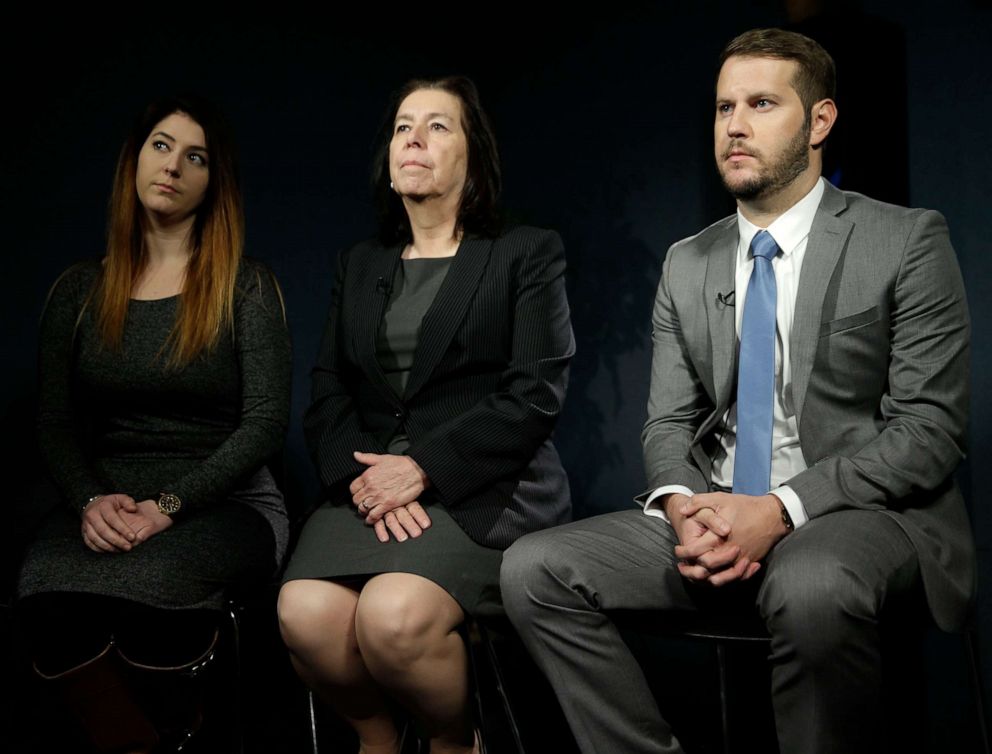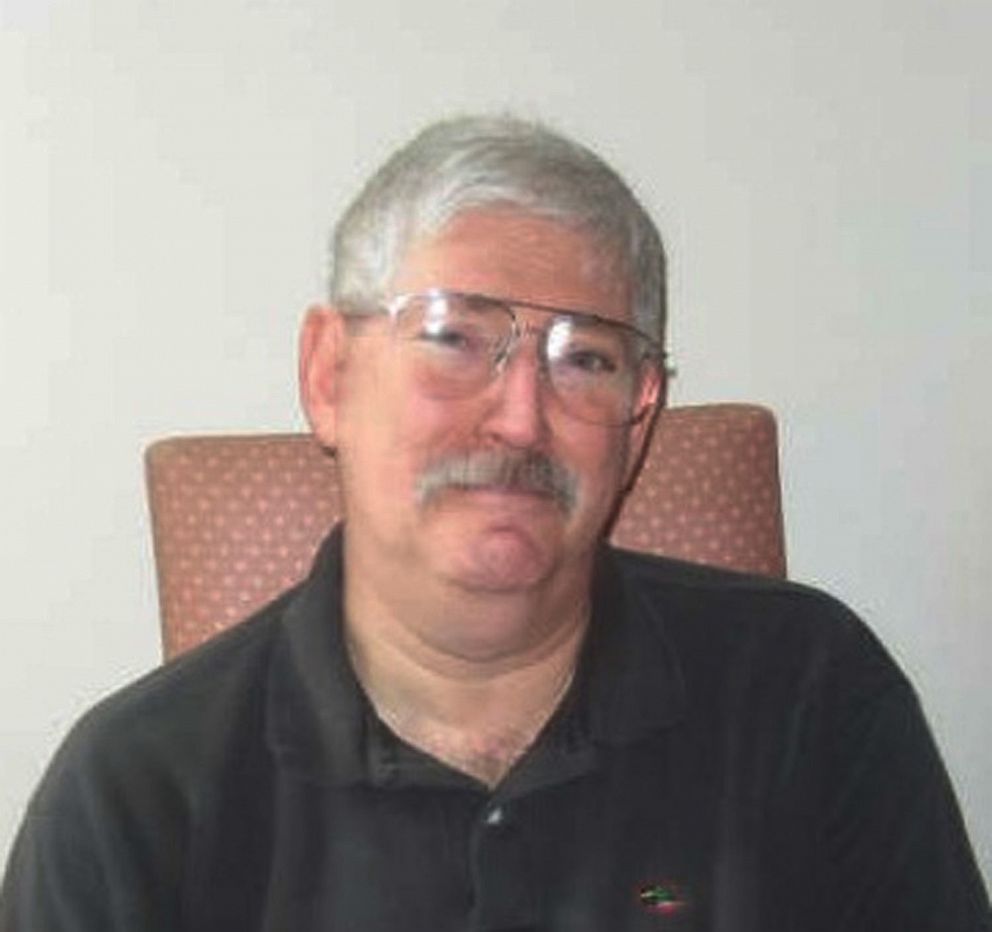Retired FBI agent, missing in Iran since 2007, died in captivity: Family
He was last seen alive over eight years ago in a hostage video pleading for help
The family of retired FBI Special Agent Bob Levinson, who vanished in Iran 13 years ago, said Wednesday they are now convinced he died in captivity, though when is not clear.
Levinson's wife Christine and their children said the U.S. government had informed them he was likely dead and they had accepted it -- even as President Donald Trump, who has made Levinson's case a cudgel to hammer the Iranian regime with, said at a White House briefing Wednesday evening, "No, I don't accept that he's dead. I don’t accept it."
In a statement, the Levinson family -- all tireless advocates including his daughter Sarah Moriarty, who testified in Congress again last month to press lawmakers to help bring him home -- said they had grudgingly heard the news they've dreaded for 13 years.
"We recently received information from U.S. officials that has led both them and us to conclude that our wonderful husband and father died while in Iranian custody. We don’t know when or how he died, only that it was prior to the COVID-19 pandemic," the Levinsons said. "It is impossible to describe our pain. Our family will spend the rest of our lives without the most amazing man we have ever known, a new reality that is inconceivable to us. His grandchildren will never meet him. They will only know him through the stories we tell them."

It wasn't immediately clear why the Trump administration told the family that Levinson almost certainly had died as an Iranian hostage if the President himself wasn't convinced of it.
Sources have long told ABC News that bitter disagreements have existed for years inside the U.S. intelligence community, with the FBI less willing to assess their former comrade as having died a hostage than their counterparts at CIA, who reached that conclusion many years ago. Whether any new intelligence informed the recent assessment he had died was not immediately known, though the Trump administration has this year repeated demands that Levinson be returned home.
"I mean, I have to say this, and they have been making this statement to the family I believe, but it's not looking good. He wasn't well for years anyway in Iran. It's not looking promising," Trump said at the White House Wednesday when he was asked about Levinson. "I’m telling you it's not looking great but I won't accept that he's dead. They haven't told us that he's dead but a lot of people are thinking that that is the case. Feel badly about it."
Some officials said they were blindsided by Trump's remarks.
While working as a CIA contractor, the retired FBI agent, who would be 72 now, vanished on Iran's Kish Island on March 9, 2007. Documents his family obtained by an Iranian source and provided to ABC News last fall appeared to show that Iranian military prosecutors ordered him detained on the island on suspicion of spying and held him for months at a military airfield even after he slipped into a coma that they said was caused by his diabetes.

Former Bush administration senior official Ladan Archin, who was born and raised in Tehran and is familiar with how Iranian military officials communicate, deemed the two 2007 documents to likely be authentic. Archin, who served as the Defense Department's Iran country director, examined the files last fall following the odd admission by Tehran's judicial system to a United Nations body that an open case against Levinson existed despite 12 years of denials by the regime that he ever was detained there.
Archin provided a more precise translation of the documents than a U.S. government translation given to the Levinsons years ago. It revealed that the word "judicial" in the apparent 2007 arrest order had been inadvertently omitted in the version originally given to the family. This was significant given Tehran's statement to the UN about a judicial case against him, which they later claimed was not an admission they held him.
"He is here using the cover of a tourist while conducting various meetings, taking pictures and gathering information," an Iranian counterintelligence official appears to have informed military prosecutor Hojatol-Islam Bahrami in March 2007, who then ordered Levinson's immediate arrest by "MOIS (Ministry of Intelligence) brothers" in a handwritten reply on the typed memo.
A spokesman for Iran’s UN Mission, Alireza Miryousefi wrote on Twitter Wednesday in response to the news that "Iran has always maintained that its officials have no knowledge of Mr. Levinson's whereabouts, and that he is not in Iranian custody."
ABC News also reported last year that Levinson's case had been set aside by the Obama administration during negotiations for the Iran nuclear deal, senior officials of both the Obama and Trump administrations confirmed, while a handful of other Americans were set free in 2016. One of those freed was Washington Post reporter Jason Rezaian, who wrote in a memoir last year that an Iranian source indicated Levinson, or answers to his fate, were withheld by the regime as a future bargaining chip for their interests.
"Initially Levinson -- or a complete accounting of what had happened to him -- was to be a part of the deal, but the Rouhani administration decided there was no political value of the time in acknowledging after eight years that yes, Iran had been responsible for his disappearance," Rezaian wrote in his book, "Prisoner: My 544 Days in an Iranian Prison -- Solitary Confinement, a Sham Trial, High-Stakes Diplomacy, and the Extraordinary Efforts It Took to Get Me Out."
Levinson’s case has long been vigorously championed by acting Director of National Intelligence Richard Grennell, who until recently was U.S. Ambassador to Germany.
With the novel coronavirus pandemic forcing Americans to avoid gatherings, even funerals, the large Levinson family is left to mourn in solitude and continue to wonder what happened to the husband, father and grandfather.
"If not for the cruel, heartless actions of the Iranian regime, Robert Levinson would be alive and home with us today. It has been 13 years waiting for answers. Thirteen years since we last saw him or had any contact with him. How those responsible in Iran could do this to a human being, while repeatedly lying to the world all this time, is incomprehensible to us. They kidnapped a foreign citizen and denied him any basic human rights, and his blood is on their hands. Bob Levinson should have spent his last moments surrounded by his family and all the love we feel for him. Instead, he died alone, in captivity thousands of miles away, in unbelievable suffering. His body has not yet been returned to us for a proper burial. We don’t even know when, or even if, his body would be returned to us. This is the very definition of cruelty."



